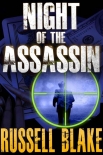The Gangster, Clive Cussler [ebook smartphone txt] 📗

- Author: Clive Cussler
Book online «The Gangster, Clive Cussler [ebook smartphone txt] 📗». Author Clive Cussler
“Why?”
“So if they notice it missing, they won’t know which way we went.”
“You’d make a fine criminal, Isaac.”
“Beats getting caught. Soon as you open it, run like heck to catch up . . . Andy, you’re lighting the lights . . . O.K., guys. On the jump!”
Bell led the way, loping long-leggedly over rails, crossties, and gravel. The other boys followed, ducking their heads. The railroad police were famously brutal, yet not likely to beat up the sons of American magnates. But if they got caught at this stunt, the Yale Chaplin would have them “rusticated,” which meant kicked out of school and sent home to their parents.
Doug sprinted ahead of the locomotive and crouched with his hands on the switch rod. Andy, whose father had put him to work backstage operating lights in his vaudeville theaters, climbed on the cowcatcher and ignited the acetylene headlamp, which cast a dull glow on the rails. Then he jumped down, ran to the back of the tender, and lighted a red lantern.
Isaac Bell vaulted up the ladder into the cab. He pulled on gloves from his satchel, passed a second pair to Ron, and pointed at the furnace door. “Open that and shovel on some coal.”
Heat blasted out.
“Scatter it so you don’t smother the fire.”
By the orange glare of the furnace, Bell compared the controls to illustrations he had memorized. Then he counted heads. All had crowded into the cab except Doug at the switch.
Bell pushed the Johnson bar forward, released the air brakes, and opened the throttle to feed steam to the cylinders. The steel behemoth shuddered alive in his hands. He remembered just in time to ease off on the throttle so it wouldn’t jump like a jackrabbit.
The guys cheered and slapped him on the back. It was rolling.
“Stop!”
The railroad cop was a mountain of a man with a bull’s-eye lantern on his belt and a yard-long billy club in his fist. He moved with startling speed to pin Antonio Branco against the boxcar he had been climbing under when the cinder dick surprised him. Branco squinted one eye to a slit and shut the other completely against the blinding light.
“How many wop arms do I got to bust before youse get the message?” the cinder dick roared. “No stealing rides. Get out of my yard, and here’s something to remember me by.”
The club flew down at his arm with a force intended to shatter bone.
Branco twisted inside the arc of the attack and ducked, saving his arm at the expense of an agonizing blow to his left knee. Doubled over, he pulled his pocket knife, opened the blade with the speed of ceaseless practice, and whipped it high, slashing the rail cop from chin to hairline.
The man screamed as blood poured into his eyes, dropped his club, and clutched his ruined face. Branco stumbled into the dark. His knee burned, as if plunged in molten lead. Battling for every step, he limped toward the empty north end of the yard, away from the lights and the cops that the screams would draw. He saw an engine moving. Not a switch engine, but a big locomotive with a red signal lantern on the back of its tender. It was rolling toward the main line. It didn’t matter where it was going—Hartford, Springfield, Boston—it was leaving New Haven. Retching with pain, he staggered after it as fast as he could, caught up, and threw himself onto the coupler on the back of the tender. He felt the wheels rumble through a switch, and the locomotive began to pick up speed.
In America, Branco had learned, freight trains erased boundaries. The country was huge—thirty times bigger than Italy—but thousands of miles of interlacing railroads melted distance. A man who rode the rails could vanish in “Little Italy” city slums and “Shantyville” labor camps. The police never noticed. Unlike the Carabinieri, who were national police, American cops knew what happened only in their own territory.
Suddenly, brakes hissed. The wheels shrieked and the engine stopped.
Branco heard someone running in the dark. He dropped to the crossties, slithered under the tender, and drew his knife. A man ran past and climbed up to the cab, shoes ringing on iron rungs. The brakes hissed release and the locomotive lurched to motion again. By then, Antonio Branco had wedged himself into a niche in the undercarriage, and New Haven was falling behind.
“More coal, Ron! Doug, pass Ron coal from the tender. Larry, Jack, help Doug.”
“There aren’t any more shovels, Isaac.”
“Use your hands.”
Speed was all. If Isaac Bell was reading the night timetable correctly, all trains had stopped running for the night after ten thirty. But the timetable warned of maintenance trains and gravel trains that might be on the tracks. The shorter time he was on the single track line, the better. Sixty miles per hour would get him to Farmington in forty minutes. He checked his watch. He had lost five full minutes stopping the train for Doug. The speed indicator read forty.
“More coal!”
The boys passed coal. Ron scooped it onto the fire. It seemed to take forever, but slowly, gradually, the steam pressure increased and the speed indicator crept up and up and up until finally she was rumbling along at sixty miles per hour. Once the train was up to sixty, and running light with no cars to haul, Bell was able to pull the Johnson bar back to an easy cruising position and let his weary, blistered, black and greasy firemen take a break.
“What’s that ahead?”
Andy had stuck his head out the side window to watch the tracks. Bell leaned out with him and saw a single dim light. He checked his watch and his map. “Mount Carmel Station.” Eight and a half miles from New Haven. Thirty-two to go. Best of all, the station house was dark. The dispatcher, who





Comments (0)